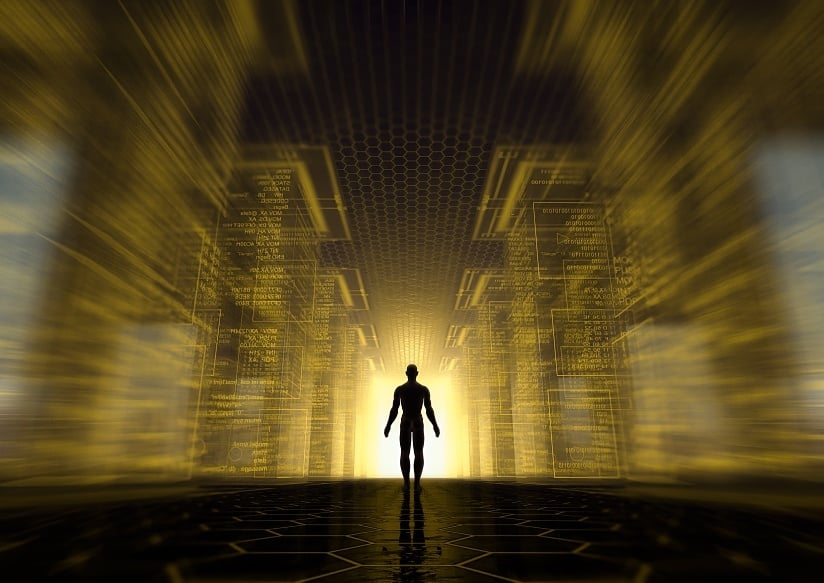June 12, 2014
The following is a homily based on the Scripture readings for Sunday, June15.
There was a lot of controversy about the Michael Jackson Hologram performance – how technology would allow a 3-D projection of him. I was on the side of those who thought it was not a good idea. We have enough trouble, I thought, distinguishing between reality and fantasy, and this blurs the line as much as possible. “It’s AS IF Michael Jackson were here.” And that’s my point. “As if” is not the same as “is.” I think, for example, if someone could hologram my mother or father, it would drive me nuts. I don’t want their image; I want them.
For most of human history, humankind’s image of God has been something like a hologram – a representation more or less vague of someone transcendent. People thought of God in the plural, as an extended dysfunctional family, as a master mechanic, as the all-seeing judge you could not escape, as the arbitrary toss of the dice or as fate. Even the Jewish people, privileged as they were with revelation, continued to evolve their sense of God.
We Christians believe that God needed no hologram. God, rather, came to us in the human being of Jesus. This is an earth-shattering revelation because we are saying what seems impossible: that the infinite comes in the finite, the almighty in the human, the totally spiritual in the flesh. But we Christians look at this paradox not as something to be ashamed of. No, just the opposite. God can only be known through symbols; God chose our own humanity as the perfect symbol to relate to us.
And this Jesus gave us the deepest, most penetrating, fullest view of God: not as an abstract force or some frustrated warrior. God is Father, the font of all love, revealed in his Son, now made flesh in Jesus, and experienced through the indwelling of the Holy Spirit. We Catholics need to appreciate again how we think of God – beyond us, beside us, but also within us, totally surrounded by God, and totally enveloped in God’s infinite love.
In the last chapter of Dante’s poem, Paradise, Dante gets to see God. Of course he cannot describe God. He can only see three glowing rings of love, endlessly generating life and grace, endlessly filling and fulfilling everything.
Each day the papers carry stories that seem like extended despair – drugs, violence, suicide, people using other cruelly and despicably. The Las Vegas killings fit this to a T. I hear these stories and say to myself: People don’t know why they are alive today! They don’t know why and for whom they are made! And this despair, to me, seems to come down to this: they don’t know God, the God of Jesus, the God of the Trinity, revealed not in an insubstantial hologram, but in the self-giving person of Jesus Christ.
To know the Trinity is nothing less than to know how Jesus experienced God, and how Jesus would have us experience God as well. Not from afar, but within the divine life and love itself.
